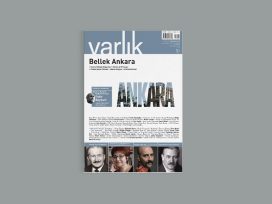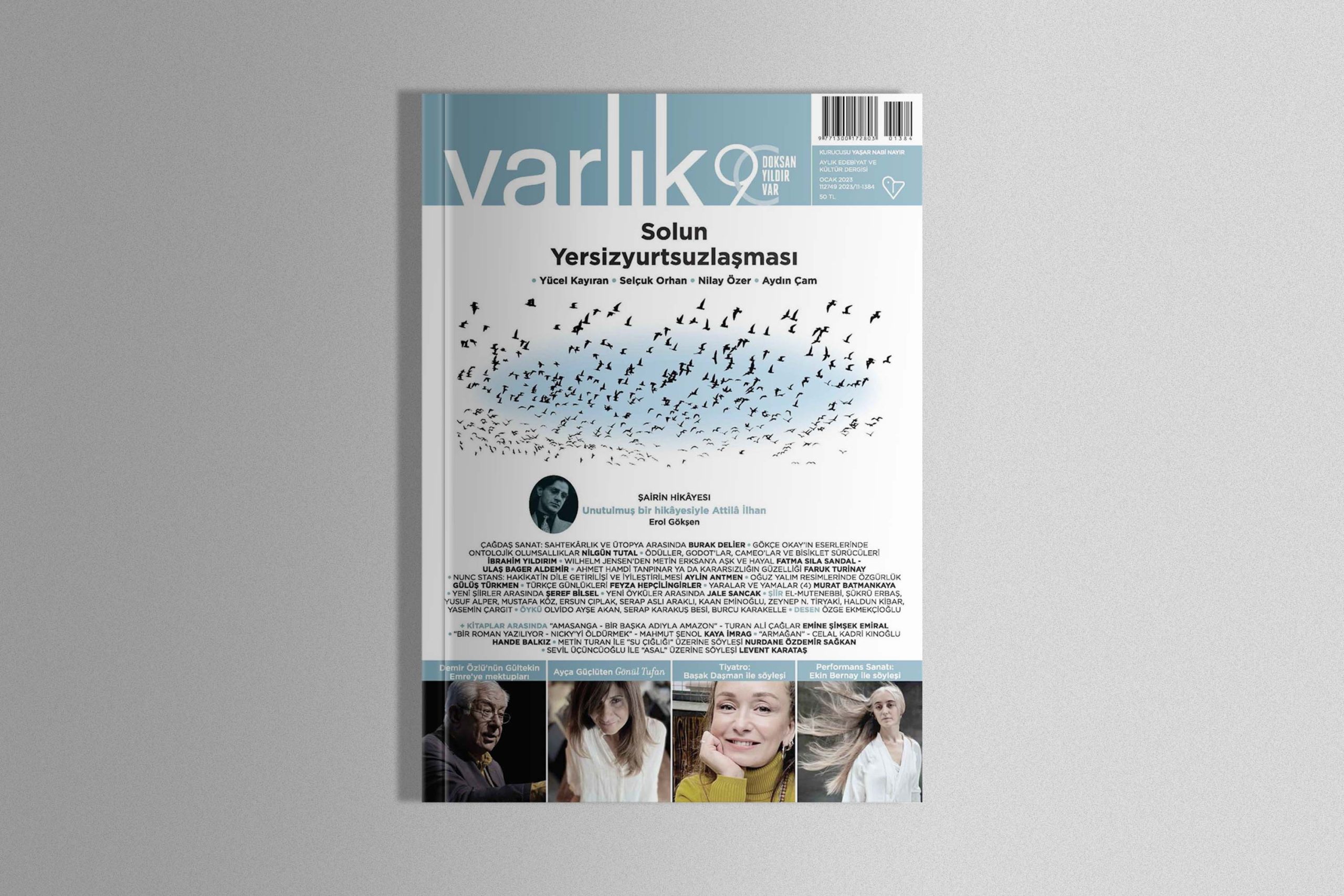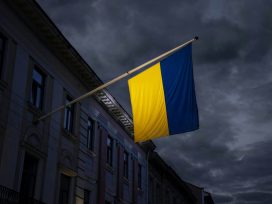
Ankara on its own terms
Varlık 10/2021
‘Varlık’ devotes an issue to Ankara, the deprecated capital: including articles on Republican theatre in the 1930s; the political symbolism of Atatürk monuments; and urban history in Anafartalar Street.
An earthquake preceded Erdoğan’s rise and another may have inaugurated his fall. In its January issue, Varlık reflects on perspectives for the Turkish left before the scheduled elections: how can the Labour and Freedom Alliance overcome historical dislocation and appeal to a socially conservative electorate?
Turkey’s 1999 earthquake killed more than 18,000 people in the west of the country. The official response was slow and unprepared, fuelling public anger at the coalition government led by the leftist Bülent Ecevit. The discontent was compounded by financial mismanagement and an economic crisis that struck in 2001. By 2002, Turkey was ready for change. That year’s elections swept Recep Tayyip Erdoğan’s Justice and Development Party into office, promising to put an end to the corruption that had allowed shoddy construction, enormous debt and rampant inflation.
Turkey is now reeling again from another cataclysm. The death toll following the massive tremors that hit the south of the country on 6 February has already surpassed the 1999 figure. Erdoğan’s response to the disaster looks inadequate and his ministers are being booed by survivors. There is widespread fury at the cosy relationship between the AKP administration and the construction industry that allowed substandard buildings to be erected or granted them retroactive permission through construction ‘amnesties’. Inflation is raging again and the currency is under pressure. Has Turkey come full circle?

The devastation caused by the earthquakes has cast doubt on the ability of Turkey to hold nationwide voting on the target date of 14 May. Nevertheless, elections must be held by mid-June. Erdogan will run in alliance with a nationalist party, while his main challenge will come from an alliance of the centre-right and social democrats. The left will be running under the banner of the Labour and Freedom Alliance. This umbrella group includes five parties, the largest of which is the pro-Kurdish Peoples’ Democratic Party (HDP), which faces possible closure for alleged organizational links to the Kurdistan Workers’ Party or PKK.
The January edition of Varlık anticipates the elections, examining the reasons for the deterritorialization and dislocation of the Turkish left. Poet Yücel Kayıran traces the left’s history in Turkey through poetry, dating its dislocation and loss of a sense of belonging to the military coup of September 1980. The military government jailed and tortured leftists and forced many to leave the country. Kayıran argues that ‘deterritorialization is a policy, not an ontological situation’ and that it was a policy ‘applied to the left through September 12, 1980.’
His survey covers works written from jail by Necmiye Alpay and Can Yücel and focuses particularly on Ahmet Telli’s 1982 poem Su Çürüdu (Water Rotted). Kayıran homes in on a repeated phrase, ‘I could remember nothing but my name’, arguing that Telli drew on Franz Kafka’s Metamorphosis to portray a narrator deprived of identity and history. The result, he says, is a ‘complete expression in a poem of the time of the policies applied at that time’.
Selçuk Orhan is pointing to many of the parties in the Labour and Freedom Alliance when he identifies another dislocation. The Turkish left, Orhan suggests, is prone to imitating its western peers rather than developing specific local policies: ‘We are trying to solve our vital problems with tools provided by other cultures and most of the time it takes longer to understand the tools than it does to understand ourselves.’
Such imports can provide ammunition to the right, and also divert the left from pressing national issues: ‘Have we read an explanation of the relationship between the PKK and the HDP from an actor on the left of centre that was not blurred or taking shelter in waffle?’ he asks.
Orhan sees the left in Turkey as struggling to exist in the space opened up by the Kurdish movement, but also constrained by that space. He also wonders about the electoral benefits of taking up LGBTQ+ issues and other causes that gain traction primarily on social media. ‘There would not be a huge contradiction if we lived in a North European country where the social state functions ideally … However, we are in Turkey.’
Nilay Özer looks at another factor that is displacing the left in theory and in practice. The climate crisis, she says, is rapidly reshaping both academic approaches to literature and thought, and political demands: ‘Expressions of leftist political thought as we have known them so far are inadequate and, in the context of nature and planetary issues, may even be problematic.’ Elsewhere Aydın Çam outlines the history of film journals in Turkey and shows they ways they have provided spaces for dislocated groups and ideologies.
In her diary, Feyza Hepçilingerler records her response to the explosion that on 14 October 2022 killed 42 miners in Amasra in the north of Turkey. Barely had the disaster been reported before Erdoğan was calling it a part of ‘the plan of destiny’. This fatalism has often characterized his response to disasters, Hepçilingerler says: ‘It is absurd to even wonder whether it will be called an accident, fate, and whether they will try to push it aside by calling it unavoidable. Of course that’s how it will be, that’s how it is.’
Review by Steve Bryant
Published 15 February 2023
Original in English
First published by Eurozine
Contributed by Varlık © Eurozine
PDF/PRINTSubscribe to know what’s worth thinking about.

‘Varlık’ devotes an issue to Ankara, the deprecated capital: including articles on Republican theatre in the 1930s; the political symbolism of Atatürk monuments; and urban history in Anafartalar Street.

A large part of the western Left, focused on NATO and the USA, failed to see Russian aggression. Of course, the war on terror needs to be brought into the discussion – but critique of liberal internationalism cannot add up to support for the ‘spheres of interest’ doctrine.